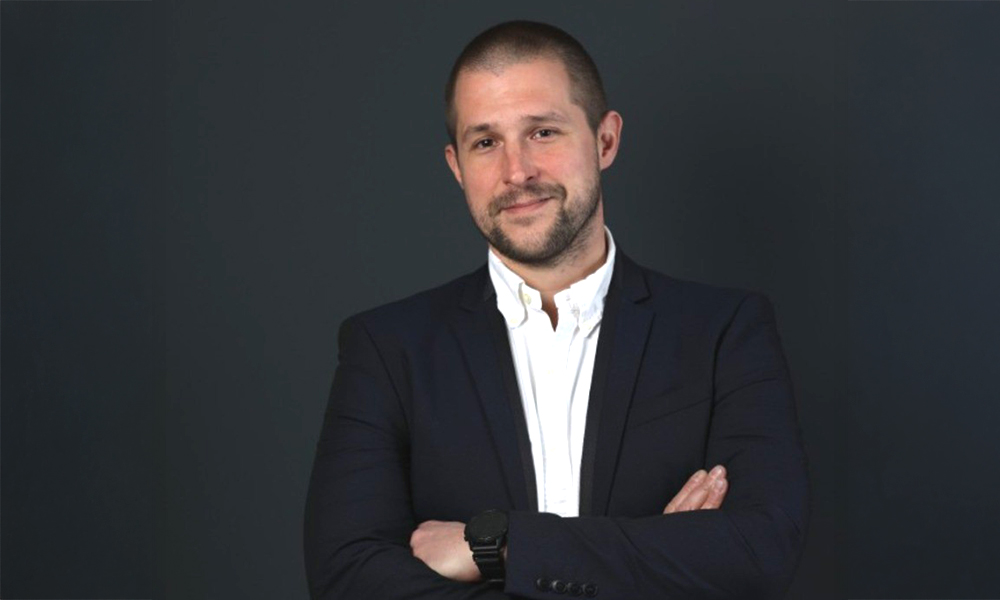
08 May Interview with Gergő Gyebnár, CEO of Black Cell, Hungary
BF: Hungary is heavily investing in IT development and cybersecurity. What is the state of digitalization and the ICT sector in the country?
Gyebnár: Hungary is positioned in the middle in terms of digitalization maturity. While some countries are ahead in certain areas, we are facing challenges that need addressing, especially in critical infrastructure. Both the state and private sectors are investing heavily in technology. While we are not closely tied to the government, we focus primarily on market opportunities, particularly in Germany and the US, with some business potential in the UK. We see positive growth in Hungarian investments and feel optimistic about the future.
BF: 2025 will mark 15 years since the company’s inception. Can you tell us about the company’s growth, how it initially started, and what the current portfolio structure looks like?
Gyebnár: We initially focused on basic firewall and endpoint security integrations, but these weren’t challenging. Later, we expanded into offensive security services, such as penetration testing and red teaming, which are now our core services. Our biggest investment has been in our Security Operations Center. Over the last 15 years, we’ve reinvested all profits into R&D, never withdrawing a dividend. We specialize in managing critical infrastructures with 24/7 services and strict SLAs, building a detection ecosystem for quick response when needed.
BF: How large is your team now, and do you outsource customer experience or assistance in the different countries and regions where you operate?
Gyebnár: We currently have 50 employees, over 40 of whom are engineers or subject matter experts. We prioritize an engineer-heavy workforce and avoid being a sales-driven organization. Our headquarters is in Budapest, with franchises in the Middle East and the UK, and an office in Frankfurt. We also have white-label partners in the US, including a major OT security provider that resells our services under their own brand.
BF: Do you have plans to enter the American market directly, or will you continue to work through partners for the foreseeable future?
Gyebnár: While we’ve taken a step back from direct expansion into the US due to the current situation, entering the market is still in our plans. We are waiting for the right moment to take action.
BF: With certifications such as NATO AQAP 2110:2016, ISO 9001:2015, and ISO/IEC 27001:2022, Black Cell is recognized for its adherence to high security and quality standards. How important are these certifications for your business?
Gyebnár: Gyebnár: These certifications are essential if we want to work with larger enterprises. They are non-negotiable and critical for credibility in the cybersecurity space.
BF: Do you partner more with large corporations or small-medium businesses?
Gyebnár: We primarily serve large international corporations, such as the third-largest company in the Luxembourg market. While we focus on diversifying our target audience, serving companies with fewer than 500 or 1,000 employees is not cost-effective, so we focus on companies with over 1,000 employees or assets We believe in valuing ourselves and, if someone is in need, we’re always ready to assist, as that’s our core mission.
BF: How do you position yourself towards potential investment or partnership opportunities to enter new markets?
Gyebnár: We are in good traction right now and are currently not seeking investment. Our focus is on delivering quality work. Many companies in cybersecurity are driven by the pursuit of profit, but for us, passion comes first. If you’re in the business solely for the money, it’s not the right approach.
BF: Where do you see the company going in the next five to 10 years?
Gyebnár: We’ve released our OT threat intelligence and ICS industrial control threat intel feeder, which has been well-received. We’re proud to be recognized for the best application development of the year with it. This year, we’re launching a bespoke cybersecurity solution for both IT and OT. We’ll manage everything within the firewall, with all detection, measurement, and techniques developed in-house. This solution will drive our growth over the next five years, and we won’t take any dividends during that time as we reinvest in the company’s future.
BF: How long have you been developing this initiative, and what will it mean for the company?
Gyebnár: We’ve been working to reduce our reliance on third-party vendors, distributors, and other external partners. Our goal is to take full control and become the producer. By eliminating unnecessary intermediaries, we can streamline the process. From a business perspective, releasing our product portfolio will allow us to re-enter channel sales, which is a powerful revenue stream. We expect this move to significantly drive growth for the company.
BF: Can you tell us more about the digital sector in Hungary and how it’s developing? Why should U.S. readers be interested in investing in or partnering with Hungarian companies, especially yours?
Gyebnár: Hungary has great talent, which should be a strong driver for investment. We specialize in securing critical infrastructures that are essential for core human services such as electricity, water, and more. Our work is vital to ensuring these services remain operational and secure.
BF: What’s your final message to our U.S. readers?
Gyebnár: If U.S. readers want to experience the true European spirit, they should give Hungary a chance. We’re proud of our people and our work. While it’s not just about us, Hungary is truly one of the most beautiful places in Europe.

Sorry, the comment form is closed at this time.